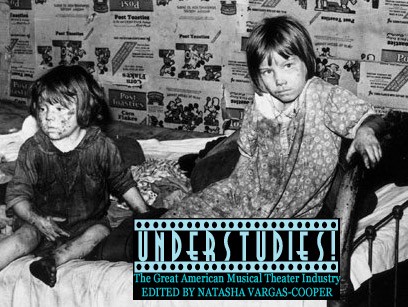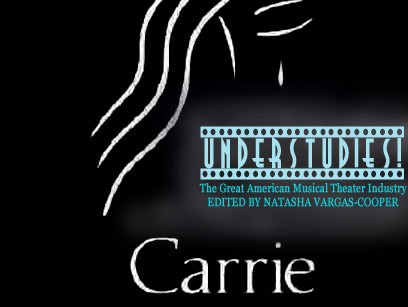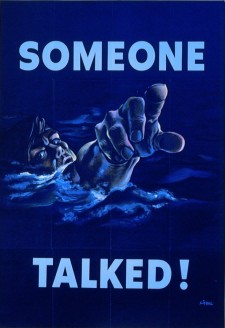New York City, Bursting Burg of Bugs, Hatches Plan to Infest World!

So maybe this is how it ends for humanity: nibbled to death in your beds. New York City will release a very stern report today about how the bed bug epidemic is going out of control. We’re all going to look like our pal Molly in the future! So, we’ve always said that New York City was a propagator of viruses that then spread throughout the world-mostly we meant intellectual ones, but now we can lay claim to being an incubator and exporter of aggressive, life-ruining insects too. Don’t worry. In the year 2400, we’ll have achieved a symbiotic melding with the bed bugs; they’ll talk to us through our skin and provide us with oxygen in our unbreathable atmosphere, and we’ll give them dinner. Turn off your “True Blood,” because bed bugs are the only real vampires… for now.
Kanye Rocks Facebook HQ A Capella
Wow! Interesting things are happening at Facebook. First, the trailer for The Social Network, the movie about how Mark Zuckerberg started the website as a student at Harvard looks way, way more compelling than something with that title and subject matter seems like it would. (It stars Jesse Eisenberg and Justin Timberlake and was directed by David Fincher, who is most famous for making movies about serial killers, so, that’s really funny!) Now, or yesterday actually, Kanye West comes to Facebook headquarters in Palo Alto, stands up in front of group of employees and gives what is probably the greatest rap performance ever staged in a corporate conference room. With a nice suit, too, and without any musical backdrop (and so a little too spoken-word style for my personal taste.) But it should really lay to rest any remaining doubts as to Kanye’s talent with words. He is not just a good writer of rhymes. He is great one. As was indicated earlier this summer by the great single, “Power,” the half a year he spent out of the public eye seems to have been a fruitful time for him, artistically.
Here’s the Social Network trailer. The stunning version of Radiohead’s “Creep” that plays behind it is performed by Belgian woman’s choir called Scala, conducted by Stijn Kolacny, with the piano accompaniment of his brother, Steven Kolacny. (Older readers will recall Scala’s excellent cover of Divynl’s “I Touch Myself.”)
John Callahan, 1951-2010
“My only compass for whether I’ve gone too far is the reaction I get from people in wheelchairs, or with hooks for hands. Like me, they are fed up with people who presume to speak for the disabled. All the pity and the patronizing. That’s what is truly detestable.”
-John Callahan, “a quadriplegic, alcoholic cartoonist whose work in newspapers and magazines made irreverent, impolitic sport of both people with disabilities and diseases and those who would pity and condescend to them,” died this weekend. Perhaps best known for his cartoon “Don’t worry, he won’t get far on foot, Callahan once told the New York Times Magazine
that he hoped to have children because, “I think it would be fun to hear the whir of little wheels around the house.” He was 59.
Understudies! The Darkness of 'Annie,' Ginger Queen of Poverty
by Angela Serratore

Listen in on a certain variety of college-age girls who are meeting each other for the first time and you’ll inevitably hear the boasts, the pride, the tentative assertions of superior talent that come with talking about what is, for these girls, the most important subject: who played whom in which high school and community theater musicals. There’s always a Maria, an Eliza Doolittle. The prim lanky ladies are a Sally Bowles (they come from an experimental charter school and have boundary issues) and there’s the Rodgers and Hammerstein girls who went to Catholic school and are in awe of the worldlier, more sexualized characters their peers were allowed to play.
At some point, someone will pipe up and announce that she, too, has starred in a musical production. She’s put on a wig and stage makeup and a battery-pack microphone and neglected her science homework for weeks on end to learn a dance routine. She has won the hearts of parents and teachers alike with her charm, her clear-as-a-bell high notes, her ability to emote for the seats in the back.
And then, Little Orphan Annie gets laughed at.
Annies are a sisterhood united in red wigs, misbehaving dogs and a devastating lack of respect from cooler, more adult stage characters. Some of this, to be sure, is because “Annie” happens largely in elementary schools, years away from the stolen cigarettes and kisses that make up so many high school musical theater memories. Annie, you see, is literally child’s play, by and for a group of people not old enough to see “Cabaret” without a parent or legal guardian-and for that Annies are punished.
You know what? We’re sick of it.
“Annie” is a musical that doesn’t quite fit into any established category. It’s not a comedy, no one dies, and the center of the story isn’t unrequited love but poverty, both of wealth and affection. In addition to these grim qualities, it is terrifying.
Annie and her friends, as you may remember, live in an orphanage, and yes, they sing songs and dance up and down the stairs, but the songs are about hard labor and the dances are elaborately choreographed escapes from Miss Hannigan, the drunk warden who abuses the kids and does a very peculiar and highly sexualized song and dance routine with her brother.
Annie longs to reunite with her birth parents, but unlike the wealthy orphans of The Little Prince or The Secret Garden, cared for by elderly grandmothers and their butlers, Annie is stuck in a tenement house in the New York City of the 1930s, which communicates to everyone but her that her parents are dead, destitute or both.
Also, everyone Annie meets-besides Daddy Warbucks, Miss Farrell and FDR-is a hobo!
It’s dark stuff, and yet! Reviews good and bad always seem to judge the show based on its appeal to families and children. A 1996 production starring Kathie Lee Gifford as Miss Hannigan (and here you thought no orphanage head was more likely to eat her charges than Carol Burnett in the 1983 film version) was praised by the New York Times as “an elating piece of family theater that deserves to become the mass-entertainment holiday staple it aspires to be.” A year later, though, a new Broadway cast was called charmless and antithetical to the show’s “perky, crowd-pleasing roots.”
It is apparently impossible that a show starring children, some of whom, yes, are indefatigably optimistic, can also be scary and real and a reflection of how precarious life for the Other Half is in times of economic hardship and national malaise.
There’s also the problem of “Tomorrow,” the song most associated with the show and the Pollyanna qualities that have shunted it into the “musicals for children” category. Yes, it can grate, and yes, there isn’t a whole lot of subtext (okay, there is no subtext) happening, but it’s also really powerful! An abandoned child who, until recently, had never gone to bed without hunger pangs is singing, on the radio, for the sole purpose of brightening the nights of people who are jobless, who are poor, who are hopeless-people who are, in fact, no different from the same people that were forced by the same circumstances to put her in the orphanage in the first place. It is not sexy, and it is not mournful, but it is pure-not an expression of feeling from singer to audience, but a chance for audience to express feelings of their own.
When it was announced that “Annie” would be returning to Broadway in 2012, something shifted. I have yet to read anything mocking the show’s reappearance, and perhaps more encouraging, critics and fans alike seem to realize how exceptional the timing is. The Great Depression feels closer now than it did in 1996. We as theatergoers might be ready to see the show not as a glorified pageant for children, but as something closely resembling our own realities, if enhanced by tap dancing. And, in what is a true vindication for Annies everywhere, the original Annie, Andrea McArdle, is taking over the role of Miss Hannigan, inspiring a slew of “day after ‘Tomorrow’” headline puns — and not one joke about red wigs.
Angela Serratore is a writer/historian in Los Angeles, and has played Annie-twice!
Understudies! "Carrie": The Worst Musical Ever
Understudies! “Carrie”: The Worst Musical Ever
by Tyler Coates

There are many flops in the annals of Broadway history, but none-not even “Anna Karenina”-are as notorious as “Carrie,” the 1988 musical adapted from the Stephen King novel and Brian De Palma film. The musical was co-produced by the Royal Shakespeare Company, responsible for more high-brow and conceptual productions that were not intended to be coupled with cheesy pop-rock scores for American audiences who expected to understand what the hell is going on. Initially, critics even claimed that the subject matter was too dark for a musical, which is hardly the case; serious musicals like “West Side Story,” “Sweeney Todd,” “Evita,” and-in the previous Broadway season-”The Phantom of the Opera” were all immensely successful on Broadway. “Carrie” failed primarily because it was a giant mess of a show; the very simple and timeless Cinderella storyline (with bonus menses and mass murder subplots) is perfect for a stage adaptation, but the play was muddled with high-concept staging and campy production qualities dressed-up as grand drama.
The story is simple: Carrie White, the social outcast at her New England high school, gets revenge on her classmates at the senior prom by destroying the party with a little help from her telekinetic powers. The novel was King’s first to be published, and the film was DePalma’s first commercial success. The film’s stars-Sissy Spacek as Carrie White and Piper Laurie as her religious fanatic mother-both received Academy Award nominations for their performances, which was surprising considering the film’s genre.
But beyond being easily classified as a horror story, “Carrie” perfectly depicted the pains of adolescence; I’m definitely not the only one who was picked on by the popular kids, and surely I wasn’t the only one who fantasized about seeking revenge on his classmates with everyday objects in a completely healthy, pre-Columbine way that involved the full understanding of fantasy versus reality. (Right?)
The show, sadly, was a complete disaster. How did a production helmed by a creative team of professionals with actual theater experience result in a massive disco-infused turd? This is a show ready-made for teenagers, ladies and anyone who hasn’t fit in-so where did it all go so bloody wrong?
Unlike King’s Maine setting, the musical was set in a very strange place (possibly Mars), where the teenage girls wear metallic bodysuits on dates with their leather-daddy boyfriends.
The musical opens in what one assumes is a high school gymnasium, but the stage is one large white room-one reviewer described it as resembling “a hospital kitchen.” A group of presumably teenaged Olympians dressed in short skirts resembling togas rush to the front of the stage, screaming at the top of their lungs and doing aerobics.
It’s the first dose of the bizarre costume choices: why aren’t these girls wearing, I dunno, t-shirts and gym shorts? And why is the gym teacher (played by former Crystals member Darlene Love) wearing similarly-styled Greek lounge wear? It’s distracting from the surprisingly good opening number “In,” wherein the girls sing about the pressures of adolescence and the politics of high school.
Everyday, I just pray, every move I make is right.
Where I go, who I know, how I wear my hair come Saturday night.
And I worry, what if all my ends should split?
I worry, what can I possibly do?
To fit in, smack, right on track,
What comes close to that?
Until you fit in, you ain’t where it’s at.
’Cause when you’re out it’s just the pits, you can never win.
There’s no doubt that life just doesn’t begin, until you’re in.
Soon Carrie enters the scene; she tries in vain to mimic the frantic Debbie Allen choreography. The difference between Carrie and the other girls is striking: Sissy Spacek’s Carrie was actually quite lovely, just a bit awkward and treated as an outcast because of her religious upbringing. Linzi Hateley’s Carrie, however, is dumpy and sad-she has a slightly chubby, boxy frame accentuated by a white dress that makes her look like a nursing student. The awkward seventeen-year-old has no chance to fit in with the rest of the lithe Amazonian women on stage, who all look to be at least ten years her senior.
After the second number-another tune that features the cast ruminating on the difficulties of being a teenager-Carrie runs onstage screaming, having gotten her period for the first time. You know this already, because you know what “Carrie” is about, and you’d probably also be taken aback when the girls yell, “Carrie’s got the curse! Carrie’s got the curse!” rather than, “Plug it up!” I mention this because one’s understanding of the basic plot of the musical is predicated upon a prior knowledge of the story. Do you remember in the movie how, after the girls throw tampons at Carrie, Betty Buckley comes in as the gym teacher and slaps Carrie to calm her down? And then a light bulb bursts above them, and it’s FORESHADOWING? I mean, it’s fine if you don’t; my point is that the lightbulb breaks in the play, too, but it’s only addressed one other time: when Carrie goes home to tell her mother (played by Betty Buckley-TWIST!) about the shower incident, and Mrs. White is all, “THE CURSE OF BLOOD! THE CURSE OF POWER!”
And then they shout-sing a song about menstruation and Mrs. White throws Carrie down a trap door in the floor. Theater!
It should also be noted that “telekinesis” is never mentioned in the play. That’s a bit odd, right? Carrie’s powers are referred to as “the power”-there’s no explanation as to why she has it (the backstory provided by the film and the book: it was inherited from the absent Mr. White), and if you haven’t seen the movie you might assume Carrie has some really intense PMS, just one that produces flames rather than cramps.
In a sequence that is representative of all the musical’s flaws-clunky lyrics, pseudo-pornographic dance numbers, excruciatingly literal staging that is, somehow, intended to be symbolic of something-Sue, the popular girl with a guilty conscience, asks her boyfriend to take Carrie to the prom: “Tommy, lately I’ve just not been feeling right, I’m so ashamed of how we’ve all been treating Carrie White.”
And out comes Chris, the queen bee of the school, who asks her boyfriend Billy to help her get the pig’s blood to dump on Carrie at the prom. She wears a red bodysuit that contrasts with Sue’s white unitard; when Carrie enters the scene, the two girls stand on either side of her, egging her on, as Tommy, who up to now has not actually interacted with Carrie, successfully scores the date to the dance. This is important symbolism! One girl is good so she is dressed in white! The other is bad so she is wearing red!
Then the teens instigate a chorus line backed up by the twenty ensemble members behind them. Unfortunately, there are no singing Nazis anywhere-this is all on purpose because this is art.
The second act (yes) opens with Chris and Billy’s trip to the local pig farm, where they sing what is arguably the worst song ever written for a musical. Chris and Billy dance at the front of the stage while a group of shirtless men in leather pants twirl behind them, shouting, “Chop! Kill the pig! / Pig, pig! Kill, kill! / Kill, kill! We’ll make ’em bleed! / Here’s his blood! / Blood, blood!” (The music and lyrics were written by the pair who wrote the songs from “Fame;” one would expect something better from the dudes who gave us, “Macaroni and bologna / Tuna fish, my favorite dish!”) It sounds a bit like a song from the stage version of “Hairspray,” but one would assume that John Waters could come up with a more entertaining way to execute his campy visions. (I don’t think he’d let Debbie Allen choreograph anything.)
When Carrie and Tommy finally get to the prom, they are so excited! It’s unfortunate, really, because it is by far the worst prom ever. The stage is fully lit, the cast does a group dance sequence that rivals the ridiculous scene in She’s All That and there’s a four-foot disco ball at the back of the stage. Sitting on the floor. Stage left.
Staying true to the story, Tommy and Carrie are named Prom King and Queen. Rather than dropping a bucket of blood onto Carrie, however, Tommy runs on stage and tosses what amounts to be three cups of blood at her face as Chris screams, “Carrie White eats shit!”
Everyone laughs at her. Carrie goes predictably apeshit. This is when she harnesses the full extent of her powers: she turns the prom into a spectacular Epcot laser show! Her classmates scream and writhe below her as red and green lights shoot across the stage. And… that’s it.
Nothing flies in the air, nothing blows up, besides a few brief pops in the back of the stage. I’ve seen scarier pyrotechnic displays at my hometown Moose lodge.
Once Carrie is finished with her tormenters, a GIANT WHITE STAIRCASE lowers. On it is Mrs. White, who slowly descends to greet Carrie, singing what is probably the only listenable song from the show-a quiet lullaby for Carrie. She sings, “Carrie, always remember that I love you / My love is so deep.”
Then she stabs her. Surprised, Carrie puts her hand over her mother’s heart and stops it with her mind, then crawls down the stairs to the front of the stage and dies. The end!
The show ran for five performances after previews. The producers shut it down despite sold-out shows, and the show reportedly lost the $8 million that went into the production (although a good chunk of that money came from British taxpayers, as the Royal Shakespeare Company is publicly funded). It is still considered to be the most infamous Broadway failure; Broadway historian Robert Mandelbaum framed his study of musical disasters with the show in his book Not Since Carrie: Forty Years of Broadway Musical Flops.
I wonder how this show would have fared had it not opened in the days before the Internet-when viral buzz and ironic appreciation trumped the opinions of critics. In 2009, a staged reading involving Marin Mazzie, Sutton Foster, and “American Idol” contestant Diana DeGarmo attempted to legitimize the play (and perhaps incite interest in a revival), but no amount of leveraging social networks could make it likely that we ever see another professional production. In part, as the show suffers so much from the straight-faced writing.)
Luckily, there are several websites (and a very active Facebook group!) dedicated to the show, and the original Stratford-upon-Avon production (starring Barbara Cook as Margaret White, who jumped ship before transferring to Broadway) is on YouTube in its entirety. The musical has a cult following, but it’s an entirely different one than fans of Hollywood failures: theater is so fleeting, so ethereal, that watching the performances online isn’t quite the same as owning a deluxe edition of Beyond the Valley of the Dolls on DVD. I certainly hope the few thousand people who saw the original show know how lucky they were to have experienced such an important piece of artistic failure right there in real life.
Tyler Coates is moving to New York, where he will see musicals every day, just like everyone else who lives here.
The History and Use of "Spoiler Alert"
by Nate Freeman

In her July 14, 2010 article about the premiere of the fourth season of “Mad Men,” Alessandra Stanley neglected to include a phrase that precedes potentially revealing facts in film and TV reviews: “spoiler alert.” Fans read ahead and the damage was done. A certain string of words made moot a device key to the operation of the “Mad Men” universe-the ignorance on the part of the audience of how much time has lapsed between the previous season and the current one-and she did not give readers the choice of whether or not they wanted to know before the episode aired. The information was placed casually in the middle of a sentence-and so, for some, the fun of the anticipation had been ruined, and something would be taken away from the original viewing experience. Betrayal! Stanley had broken the unspoken agreement.
The outrage was widespread. Matthew Weiner, the show’s creator, told the Hollywood Reporter that he was “shocked” and that “A lot of people told me they were blindsided by [the Stanley article].” Writing for Variety, Brian Lowry called out Stanley for “ignoring their plea to avoid spoilers-without so much as a word of warning.” New York magazine placed “Alessandra Stanley spoils pretty much everything in the ‘Mad Men’ season premiere” far on the “despicable” side of its Approval Matrix.
These past two weeks have seen the “spoiler alert” construction hit zeitgeist heights, thanks to the reaction pieces about “Mad Men” and Inception, two projects defined by a massive effort to keep their plots a secret. Both hedged their bets on the fact that people would be more interested the less they knew, pushing writers toward frequent use of the “spoiler alert” tag if they had been privy to these works before — and even some time after — their public release. In his Times article about the reaction to Inception, A.O. Scott said, “The discourse is marked by the ritualistic incantation of two words that may at this point be redundant: spoiler alert.”
In a Washington Post article from Dec. 6, 1994 about “the branching fibers of the Internet,” Amy E. Schwartz claims that, despite “the Net’s still-sparse cultural possibilities” a new language was being born on the few threads that then existed. “On movie buffs’ discussion lists, for instance, there is wide use of the term ‘spoiler alert,’ which is a warning inserted before any comment that would give away a film’s ending.” The Usenet archives compiled on the Google Groups page reveals that nerds were bandying about the phrase as early as June 8 1982, when a commenter placed “[SPOILER ALERT]” before mentioning a detail about Star Trek II: The Wrath of Khan. The movie had been released just four days earlier, so he assumed many had not yet seen it.
By the time the Internet began writing at length about “Survivor” in 2000, it was commonplace to warn readers of the spoilers that gave away information about who was going to get kicked off the island. Roger Ebert issued something of a referendum on the practice of “spoiling” movies for viewers in a 2005 article, detailing his anger with critics who give too much away and explaining his decision to issue “spoiler warnings” in his reviews after seeing them used online.
Now, with every blog writing a weekly recap of every show-shows that are more often than not TiVO’d or DVR’d and watched the next day-the phrase “spoiler alert” is inescapable. It’s even approaching redundancy, as Scott suggested-yes, we know that your “True Blood” post will give away all those incredibly important plot points essential to your enjoyment of that masterwork of television. You don’t have to tell us anymore.
Except… for when you do. We absorb an immense amount of information each day, and there’s no way to clear out an entire bundle of RSS feeds without coming across something-an article, or a tweet, an email, anything-that gives away a key element of a TV show or movie you’ve been planning to see. We’re not going to watch every show when it airs, so when we come across the recaps in a dozen blogs, we need some heads up if something’s going to be spilled. So put in those two words, even if they seem redundant. Because if you do-spoiler alert!-it might save someone’s Sunday night.
Loveless Internet Shrew Attacked
Awl pal Lizzie Skurnick took issue with CBS legal correspondent Andrew Cohen’s “heartfelt tribute to the love that got away on the occasion of her wedding to someone else,” noting that “publishing, on her wedding day, a rundown that frames the lady’s virtues almost entirely by how well she treated you falls somewhere between inconsiderate and catastrophically narcissistic.” Cohen’s response begins, “I won’t embarrass you further (than you’ve already embarrassed yourself) by responding in public to your shrewish little column,” and gets more cringe-worthy from there. You’ll enjoy these, I promise.
New Abstinence Videogame Like 'Avatar,' But Without Tail-Knocking
A new videogame will help middle school students learn how to say no when sex pops up its head and rubs its firm, grasping hands up and down their bodies. Or something. I don’t know. I thought videogames were already a good way of preventing sex.
Elton John Will Not Host American Idol, Insists Publicist
“Absolute rubbish… This story’s three months old. There’s more chance of you fucking me than Elton appearing on US Idol.”
-Gary Farrow, publicist for Elton John, vigorously disputes the rumor that the singer will replace Simon Cowell on “American Idol.”
JebWatch '10 Ends Suddenly: "I am Not Running for President."

“Former Florida GOP Gov. Jeb Bush said Tuesday that he is ‘not running’ for president in 2012.”
–I don’t really believe it but okay. *Running to my room, slamming the door, weeping for a while.*
